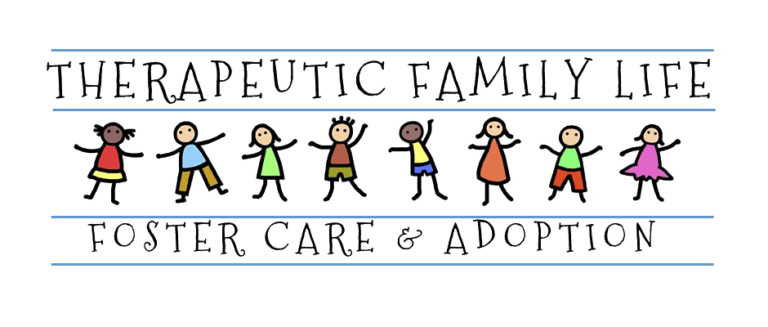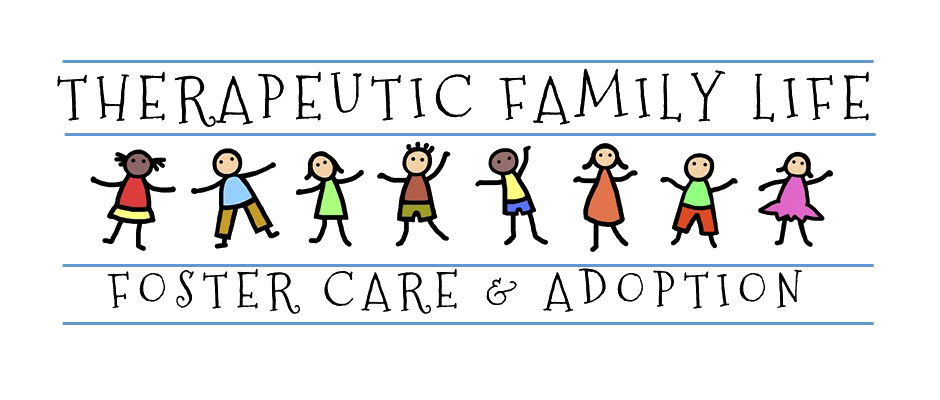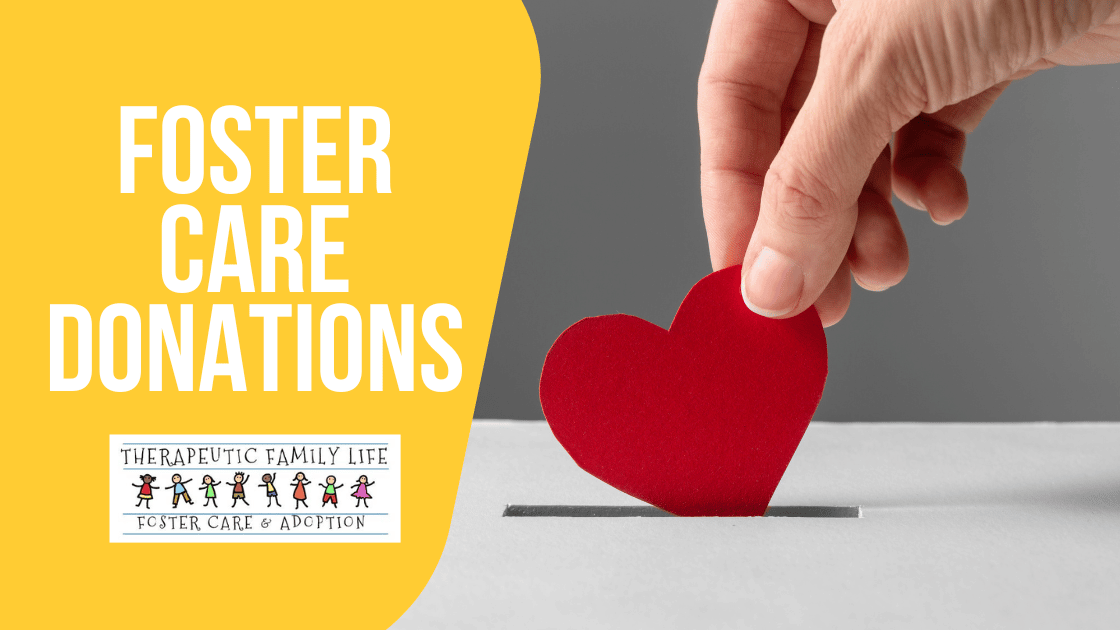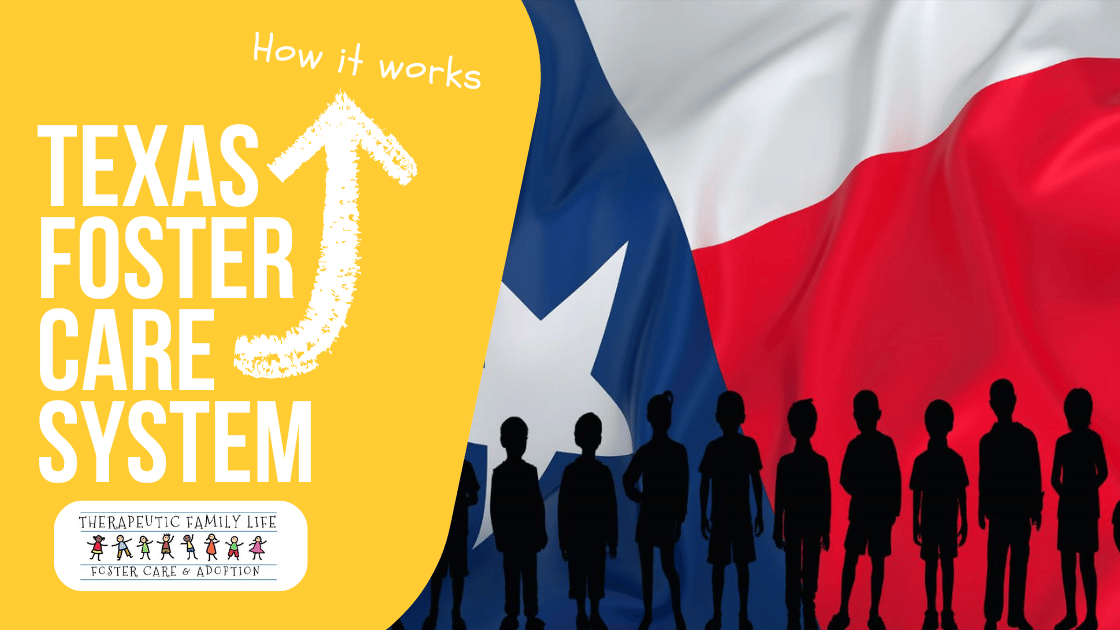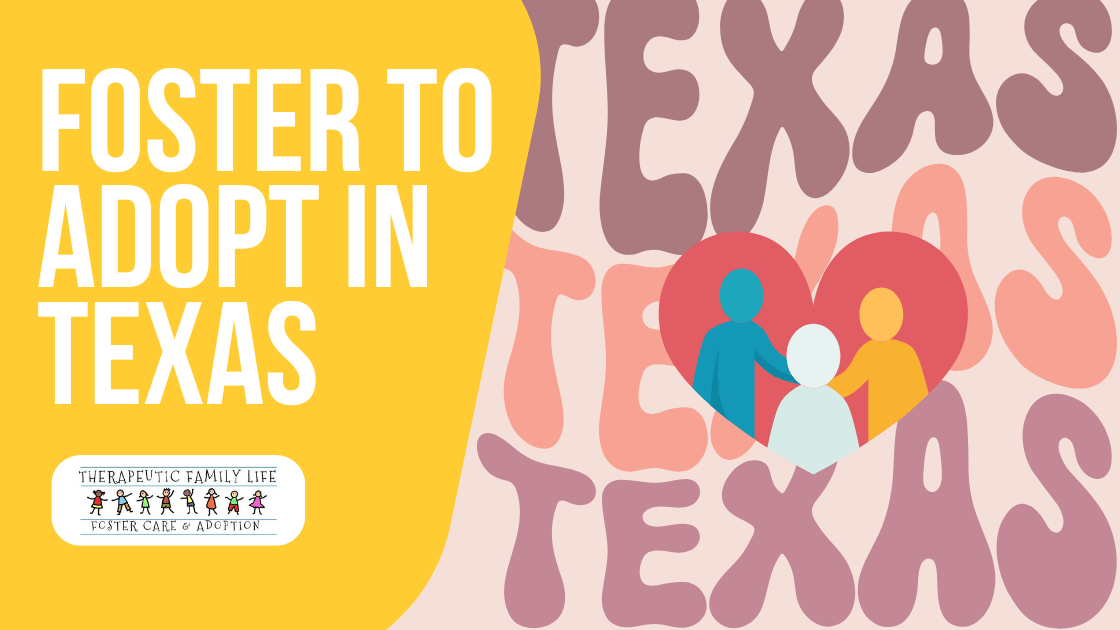Being a foster parent can be one of the most rewarding things you ever do – but you’ll face many challenges that require preparation and insight. That’s where good training comes in. Whether you’re fostering for the first time or expanding your skills, in-person or online foster parent training will make a difference. Foster care training helps you build the knowledge and confidence to support children through difficult transitions. Programs handle everything from managing emotions and behavior to creating a safe, nurturing environment.
This guide will explain the different types of programs, how to find the right training course, how to apply what you learn, and how to build a strong support network.
But first, let’s look at…
Why Specialized Training Matters
Specialized foster care training gives you the tools and know-how to support the emotional, behavioral, and developmental needs of the children you welcome into your home.
Many foster kids have been through tough situations—like trauma, neglect, or instability—so creating a safe and supportive environment for them is essential.
The good news? Online foster parent training makes it much easier to learn these skills. With online programs, you can work at your own pace—perfect if you’re juggling other commitments or living somewhere far from in-person training sessions.
Types of Online Foster Parent Training Programs
There are many different foster parent training programs, each designed to meet specific needs.
Here’s a quick look at the most common ones:
1. State-Specific Foster Parent Training Programs
Every state has its own requirements for fostering, so you’ll need training that meets those rules. Online courses tailored to your state’s regulations can help you stay on top of things like licensing, safety protocols, and healthcare policies.
These programs usually cover the basics—like child safety, legal processes, and healthcare—but here’s a breakdown of the pros and cons:
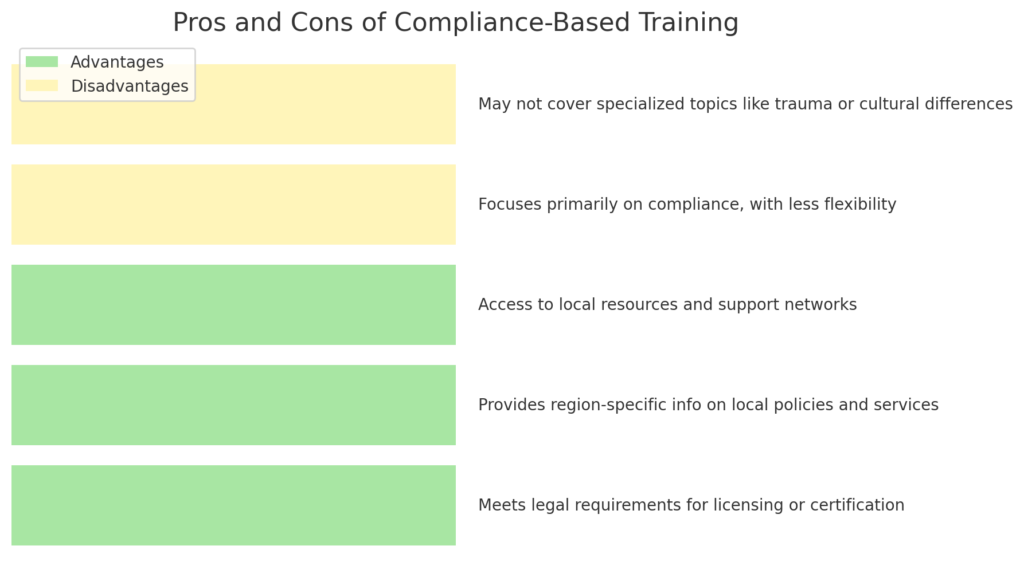
Note: In Texas, agencies like the Texas Department of Family and Protective Services (DFPS) set the guidelines for foster care, including required training hours.
Our Houston-based agency offers training that equips families with skills to provide safe homes for children in their care. We verify homes for Basic Foster Care, Therapeutic Foster Care, and Kinship Care that are qualified to care for the specific needs of children in the foster care system.
2. Trauma-Informed Care Training
A lot of kids in foster care have gone through challenging experiences, which is why trauma-informed care is an important part of foster parent preparation. These programs help you understand how trauma affects children and give you practical strategies for handling emotional and behavioral challenges.
Here’s a quick summary of the pros and cons:
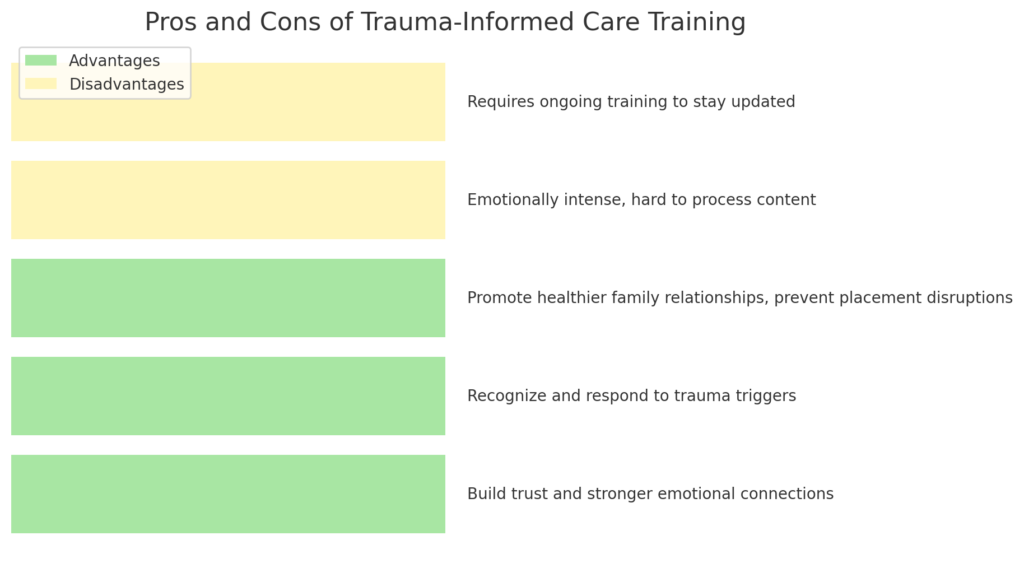
3. Cultural Competency Training
As a foster parent, you may care for kids from different cultural backgrounds, and cultural competency training helps you do that with respect and understanding. These programs teach you how to honor a child’s heritage and identity while making them feel at home in your family.
Here’s a quick look at the pros and cons:
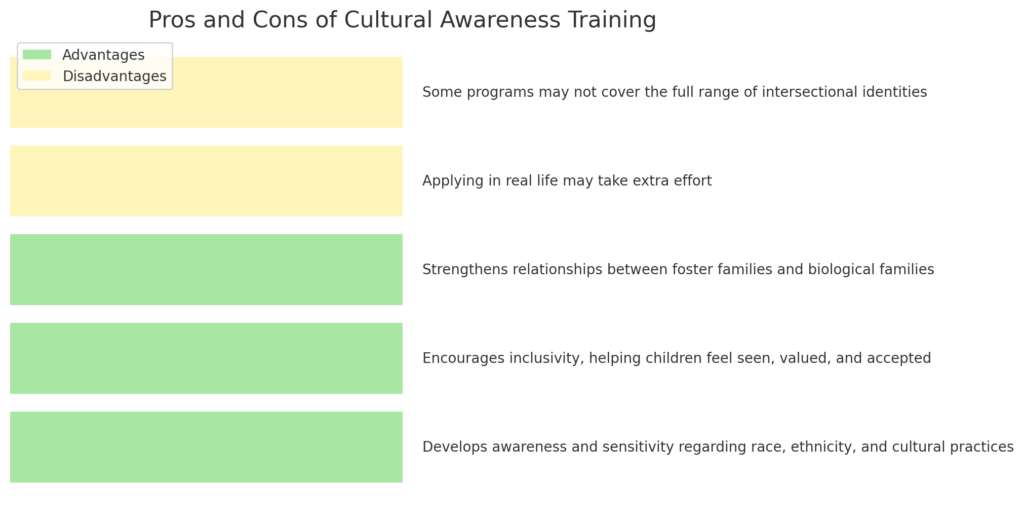
Identifying High-Quality Training Programs
High-quality foster parent training programs offer solid, reliable information and practical tools.
If you’re trying to figure out whether a program is worth your time, here are two things to keep in mind:
1. Tick Off These Key Features
Accreditation and State Approval: Make sure the program is accredited or approved by state child welfare agencies so you know it meets professional standards.
Expert Instructors: The best programs are led by people with real experience in child welfare, psychology, or education.
Comprehensive Curriculum: Look for programs that dive deep into the topics they cover—you want more than just surface-level information.
Interactive and Flexible Learning: Great programs offer multimedia lessons, role-playing exercises, real-life scenarios, and room for discussion. Flexibility is key if you have a busy schedule!
Post-Training Support and Resources: The best programs don’t end when you’ve worked through all the modules – they provide ongoing access to materials and support groups to help you along the way.
2. Assess the Credibility and Effectiveness of the Training Program
One of the best ways to determine if a training program is worth your time is by checking out reviews and testimonials from other foster parents. Their experiences can give you a good idea of what to expect. It’s also helpful to ask your local child welfare agency for recommendations or join online communities—like those on Facebook or Reddit—where foster parents swap advice about training programs.
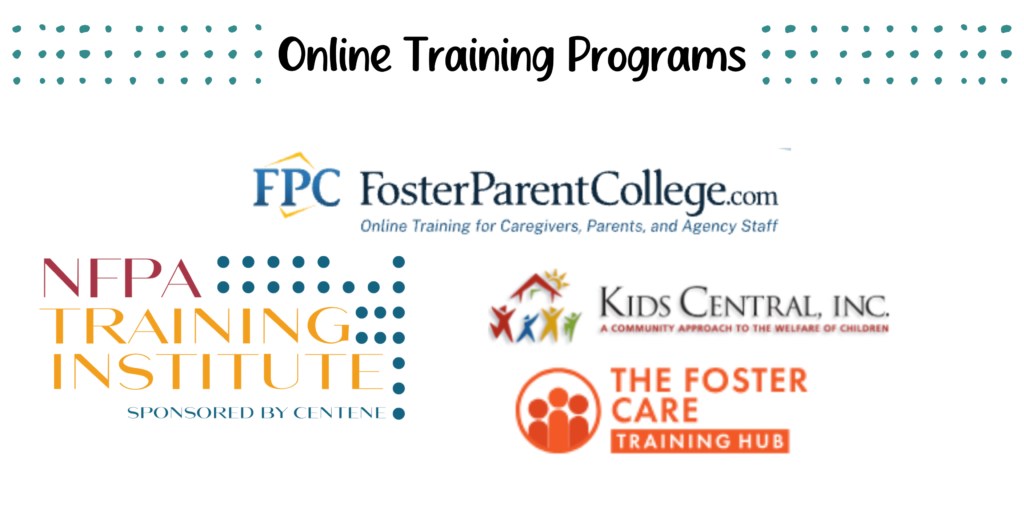
Here are a few well-known programs that offer high-quality online foster care training:
FosterParentCollege
The National Foster Parent Association (NFPA) Online Training Institute
Kids Central, Inc
Foster Care Training Hub
Choosing the Right Training For Your Needs
Your fostering journey is unique, so the right training program will depend on your specific needs, parenting style, and the children you expect to care for. While meeting state requirements is important, going beyond the basics will leave you better prepared for anything that comes your way.
Whether you’re getting ready to care for teens, children who have experienced trauma, or foster kids from diverse cultural backgrounds, finding training that fits your situation will set you up for long-term success.
Tips for Choosing the Right Foster Care Training for You
1. Look at Your Family’s Situation and Strengths
Are you single? Part of a couple? Do you already have children? These factors can influence the type of foster care training you need. For example, learning how to manage sibling relationships is important if you already have children or plan to foster sibling groups.
2. Think About the Needs of the Child You’ll Be Fostering
Children with specific challenges, such as developmental delays or trauma histories, require different care. If you plan on fostering a child with these challenges, you’ll need to find a program that focuses on those areas. Trauma-informed care and mental health support modules will prepare you to handle behavioral and emotional difficulties.
3. Consider the Age of the Child You’ll Be Fostering
There’s a massive difference between what toddlers and teenagers need. Foster care training that offers age-targeted modules—like early childhood development or adolescent care—will help you better respond to each child’s developmental stage.
4. Account for Cultural Sensitivity and Diversity
If you’re open to fostering children from different cultural backgrounds, cultural competency training can help you meet their needs with empathy and respect. Programs focusing on this area can help you create an environment where your foster child feels connected to their heritage while adjusting to their new home.
5. Consider Your Schedule and Learning Preferences
Choose programs that align with your availability and learning style. If you balance other responsibilities, online foster parent training programs with self-paced courses or flexible scheduling are ideal.
6. Keep the Importance of Continuous Education in Mind
Foster parenting is a lifelong learning process. Your initial training is just the beginning. Laws, research, and best practices evolve all the time. You need to stay up-to-date through continuous education. Online foster parent training programs typically add additional modules as new information emerges and make them accessible if you enrolled for the course in the past, making them a great option for staying in the loop.
Integrating Learning into Practice
Foster care training is an important first step, but applying what you’ve learned is the real challenge. While online foster parent training and in-person courses both provide valuable knowledge, hands-on experience brings what you’ve learned to life. Here are some practical tips to help bridge the gap between training and everyday fostering:
Start Small – Don’t overwhelm yourself by trying to apply every strategy at once. Focus on one or two methods. Small, consistent changes lead to the best results.
Reflect – Take time to think about what’s working and what isn’t. Journaling your experiences can help you spot patterns and fine-tune your approach over time.
Collaborate – Include your foster child in conversations about house rules, routines, and boundaries. This can build trust and help them feel a sense of ownership over their environment.
Adapt – Change your techniques as you work through challenges. If a strategy feels unnatural, tweak it until it works better for you and your foster child.
The Role of Community and Support Networks in Reinforcing Training
Having a strong support network of other foster parents is incredibly helpful, especially in those moments when you feel stuck. Online and in-person support systems can offer advice, encouragement, and shared experiences. If you’re unsure about which training concepts to put into practice, these networks can be the best place to ask questions and share your challenges.
Connecting with other foster parents allows you to learn from their experiences and get practical tips that really work. You can join foster parent communities, participate in peer mentorship programs, and attend workshops or support group meetings locally or online. Working closely with your caseworker and child welfare agencies can also help you tailor your approach to meet your foster child where they are.
Training Builds Confidence, Care, and Connection
Choosing the right training isn’t just about meeting state requirements—it’s an investment in your ability to give the care and stability foster children need to heal and thrive. Investing in the right online foster parent training program will help you prepare yourself to provide the best care for children placed with your family. And with continuous learning, you’ll grow alongside the children in your care, staying adaptable to their changing needs and deepening your understanding of how to guide them through their challenges.
Natasha is an experienced blog writer with a deep interest in psychology, particularly as it relates to childhood. Her dedication to understanding how childhood experiences carry over into adulthood drives her to actively engage in initiatives that positively impact the lives of children in need. Through her writing, Natasha aims to provide valuable insights, encouragement, and resources to families navigating the complexities of foster care and adoption. Her work has been published in The Expert Editor, Wonder Baby, and Hack Spirit. About This Author

Natasha Combrink
